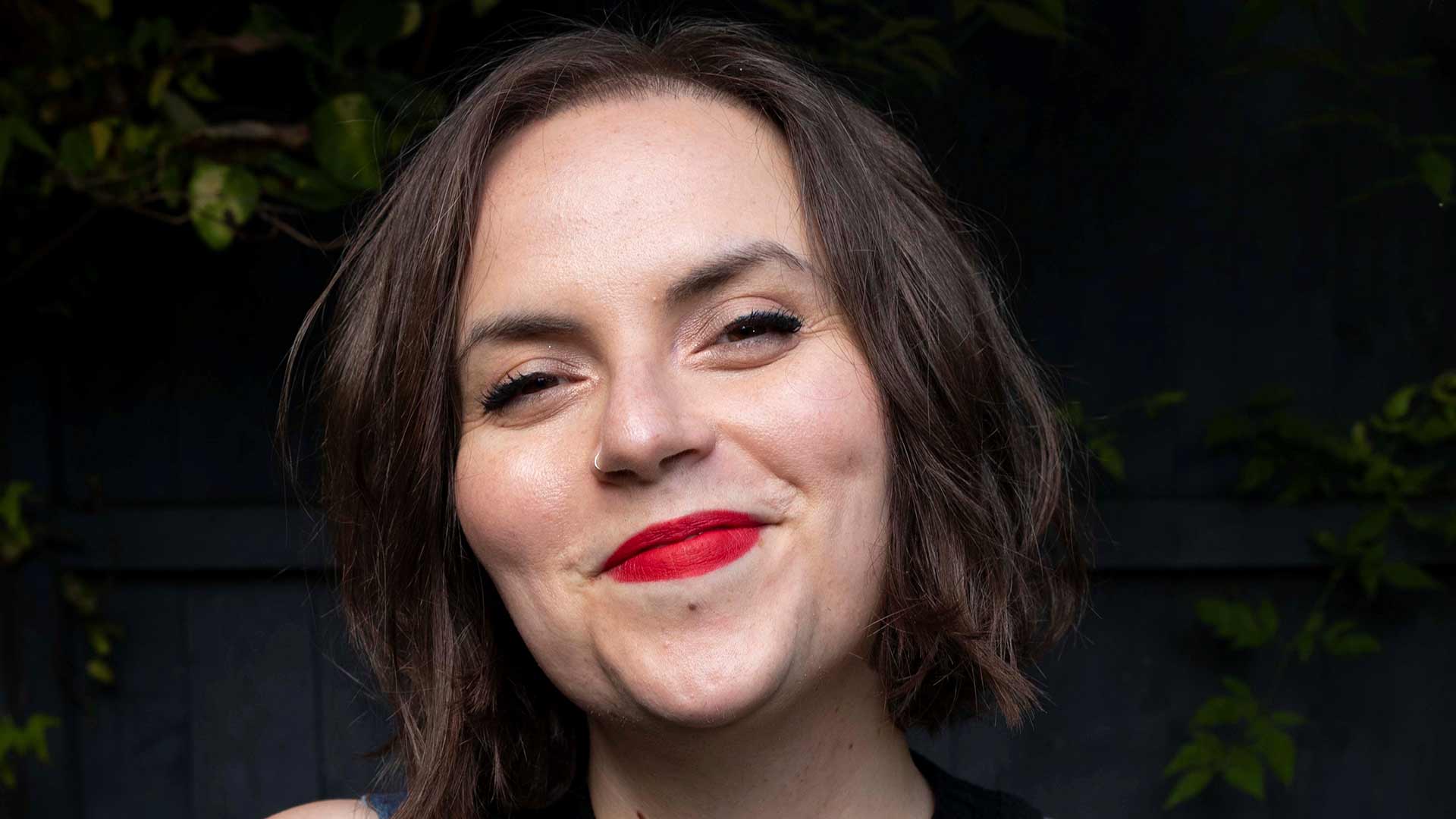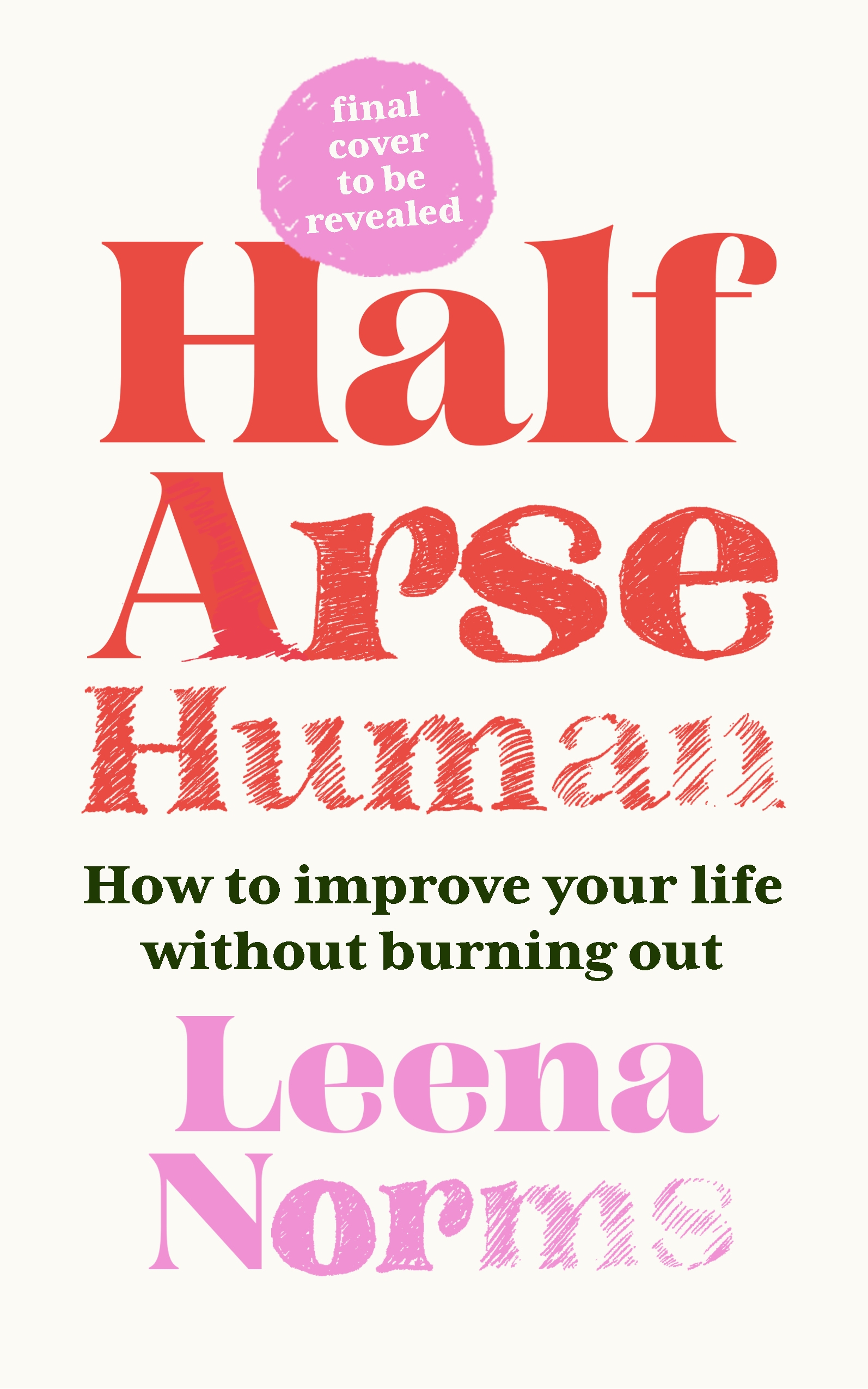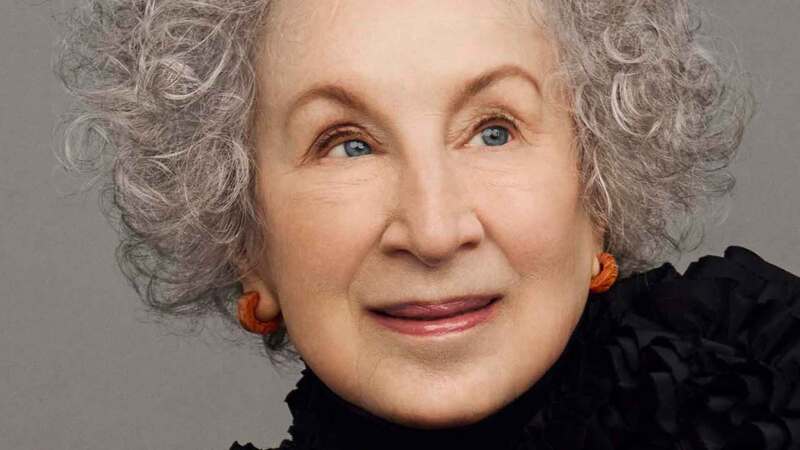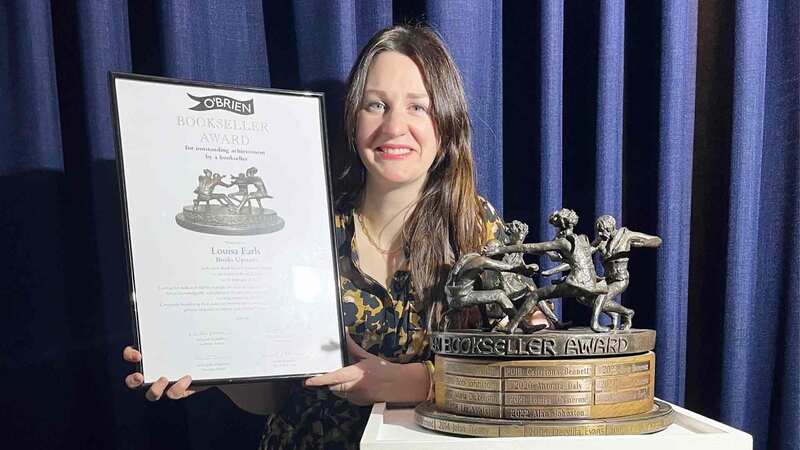You are viewing your 1 free article this month. Login to read more articles.
Poet, vlogger and self-confessed ‘half-arse human’ Leena Norms talks about her new self-help guide
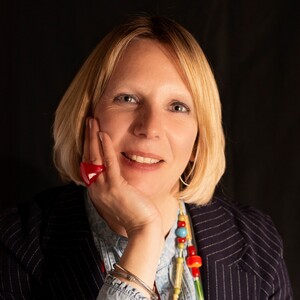
Caroline Sanderson is Associate Editor of The Bookseller, and since 2000, the magazine's non-fiction previewer. In 2022 she was Chair of ...more
Leena Norms’ Half-Arse Human is an entertaining self-help guide to achieving realistic goals and avoiding burnout.

Caroline Sanderson is Associate Editor of The Bookseller, and since 2000, the magazine's non-fiction previewer. In 2022 she was Chair of ...more
“I’ve realised (just in time) that the world is made up of strategic half-arsers. They’ve opted to simply think with their arse and get done what they can.” So writes poet and vlogger Leena Norms in Half-Arse Human: How to Live Better Without Burning Out, her entertaining self-help guide in which she outs herself as a “shave-one-legger” who is also determined to build a career, improve her relationships, sort out her wardrobe, act on her ethics and live a full life.
From Half-Arse Style (including “the con of the capsule wardrobe”) and Half-Arse Career (“half-arsers are union members”) to Half-Arse Vegan (“meat-eaters welcome”) and Half-Arse Body (“ALL RUNS ARE GOOD RUNS”), it is full of practical and realistic advice, along with suggested small actions for making a better stab at life without stressing yourself out in the process. As Norms puts it: “How we can start achieving things that are in line with our life goals without over-committing. Because over-commitment so often leads to burnout.”
With a C.V. that includes stints as social media producer for Vintage and business development manager for the Telegraph, Norms—now in her mid-30s—has amassed more than 24 million views on her eclectic YouTube channel (“style, books and existential dread”) and was named Book Vlogger of the Year by the London Book Fair in 2020. An official YouTube Creator for Change, she published her début poetry collection, Bargain Bin Rom-Com, with Burning Eye Books in 2022.
When we meet via video call, Norms speaking from her home in the West Midlands, she tells me that her half-arse philosophy began to crystallise after she came up with the idea of “half-arse veganism”: “I’ve always talked about not trying to be perfect and not worrying about things so much. But when I started learning about veganism and the UK goal of reducing our consumption of meat and dairy by 30% by 2030, I realised that it’s less important to have an individual vegan identity, and more important for all of us collectively to contribute something towards that goal.
“So I started thinking: what if we gave people permission to half-arse things so that it’s less about puritanical beliefs and more of a group project where we all put a little bit in. I made a video called ‘Half-Arse Vegan’, which presented 10 fun and different ways whereby anyone can reduce their meat consumption.” And indeed, Half-Arse Human also includes a “Half-Arse Vegan” chapter with such brilliant suggestions as: eating a vegan breakfast each morning; buying vegan condiments, for example mayonnaise; or choosing the vegan option when you eat out (with the benefit that someone else has both thought up the dish and prepared it).
A lot of books about burnout are actually quite exhausting to read... Mine is a book for people who are too tired to read other self-help books
Once she had dreamed up the concept of being a half-arse vegan, Norms began to ponder which other aspects of life she could apply the same philosophy to, and thus the notion of a half-arse book was born. “It was one of those great moments where two people have exactly the same idea. I had made a note on my phone after I wrote the ‘Half-Arse Vegan’ video script which said: ‘HA Human….book?’ And the very next day I had an email out of the blue from editor Kate Hewson saying, ‘Leena, I’ve just seen your video—do you think this could be a book?’” She and Hewson had stayed in touch after they worked together at Icon Books, where Norms was publicity manager. “We had a very short Zoom call during which we chatted about what the themes of a half-arse book might be, and then I went away and wrote a treatment.”
I ask Norms who she sees as the core demographic for Half-Arse Human. “There are parts of the book that are quite personal to me, and so perhaps it will particularly resonate with people who have a similar outlook on life. But I’ve tried to keep it quite general too because anyone can experience burnout. What I would most love is for people who don’t usually pick up books to look at it and find it approachable and not intimidating. There’s an irony in the fact that a lot of books about burnout are actually quite exhausting to read... and I say that as someone who has read a lot of them! Mine is a book for people who are too tired to read other self-help books.”
In keeping with the fun and accessible feel, Half-Arse Human contains Norms’ own line drawings: “They are very silly. I drew them and I sent them to Kate saying, ‘Obviously these are drafts to give to an illustrator.’ And Kate said: ‘Actually these are great because it looks like you did them in MS Paint.’ I did do them in MS Paint! They’re intentionally pixellated rather than beautifully finished illustrations, because that would be ironic for a book about half-arsing it. Instead, I want the book to look like I’m giving you a pep talk on the back of an envelope.”
A strong ecological thread runs through the book, from Norms’ aforementioned thoughts on achievable veganism to her vision of us all having mushroom wardrobes connected to those of other people in an
underground mycelial network, “sending signals and swapping gladrags”. Says Norms, “The world is weird and is about to get weirder. So for me it’s counter-intuitive if we only have self-help books that focus on improving individual aspects of our individual lives. Half-Arse Human is about thinking less about your life as a project to be sliced up and perfected, and more about how your half-arsed, but still conscious, actions can link up with those of other people.” Significantly, the final chapter of her book is entitled “Half-Arse Hope”.
Norms’ own acceptance of her half-arsed self includes making peace with the idea of what she can achieve as a so-called influencer: “I used to have these fancy jobs in publishing and I was at the Telegraph. Now I’m an online influencer which can sometimes feel like a little teenage job when I tell people that I make YouTube videos. There is an aspect of it which is incredibly silly but there’s also something really hopeful about being to talk independently about whatever you want to talk about, and striving to create content that has value.”





